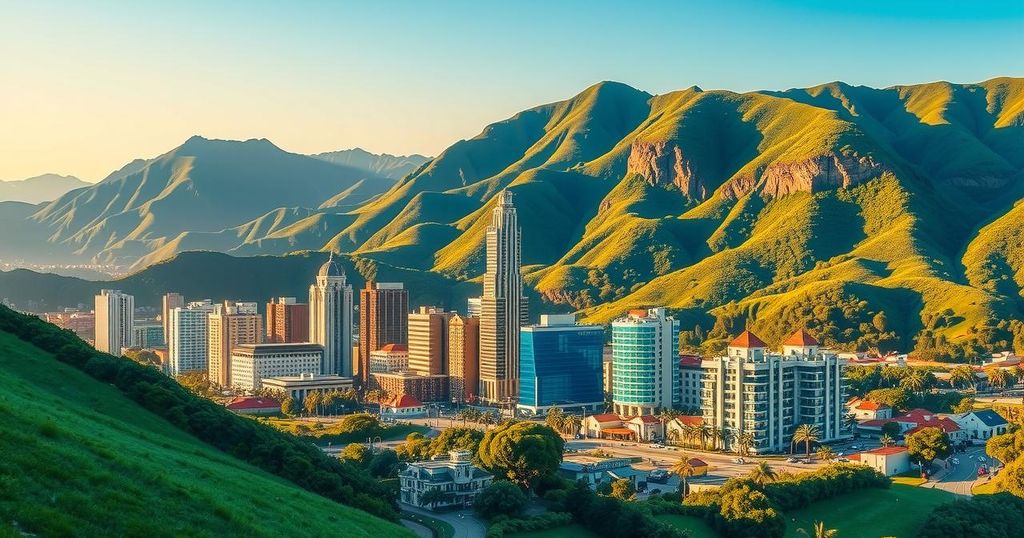U.S. Intelligence Favors Daniel Noboa in Ecuadorian Election

A U.S. intelligence report favors incumbent President Daniel Noboa in the upcoming Ecuadorian election, arguing his victory would better align with U.S. national security interests. The assessment notes concerns over challenger Luisa González’s ties to former President Correa and Venezuelan President Maduro. Ecuador faces significant political violence, and Noboa has proposed enhanced military cooperation with the U.S. to combat crime in the country.
A recent U.S. intelligence report has determined that the reelection of Ecuadorian President Daniel Noboa would align more effectively with United States national security interests than the election of his challenger, Luisa González. This assessment comes as U.S. officials consider the prospect of establishing a permanent military presence in Ecuador to combat escalating gang violence. The evaluation, completed shortly before the election, underscores the implications for U.S. policy in the region.
The assessment indicates that a victory for President Noboa, who had previously engaged with U.S. officials regarding the establishment of a U.S. military base in Ecuador, would support American interests over the next four years. Ecuadorians are set to vote amid significant political divisions and rising urban violence, presenting a critical choice between Noboa’s business-oriented leadership and González’s leftist platform, which has received attention for its connections to Venezuelan President Nicolás Maduro.
This election serves as a rematch of the 2023 contest, wherein Noboa, a political novice and son of a wealthy businessman, defeated González, who is seen as aligned with former President Rafael Correa. The intelligence report highlights González’s ties to Correa, who previously abolished U.S. military cooperation in Ecuador, citing interference in domestic affairs.
In response to escalating violence in Ecuador, Noboa has advocated for military support from the United States, remarking that his administration is “at war” with drug cartels. The recent political turmoil—including prison riots, car bombings, and kidnappings—has prompted discussions over security cooperation. One official expressed that any potential U.S. presence would primarily target criminal organizations rather than focus solely on training missions.
The assessment also raised concerns about González’s alleged financial links to Maduro, with the implication that her election could bolster Russian influence in Ecuador, an outcome unfavorable to U.S. interests. Disagreements among U.S. intelligence agencies regarding the interpretation of González’s ties highlight the complexity of the geopolitical landscape that could influence the election’s outcome.
Reports suggest that Ecuadorian officials have actively communicated their interest in hosting a U.S. military base while pursuing a free trade agreement with the U.S. Furthermore, plans are underway to develop a new naval facility in Manta to support U.S. forces. Noboa has expressed a desire for cooperation from the U.S. and other nations in addressing Ecuador’s security crises.
Economically, Ecuador stands as one of the largest economies in Latin America, with substantial bilateral trade relations with the United States, which reached $15.2 billion in 2023. The nature of this relationship illustrates a dependence on U.S. markets for a variety of exports, including oil and agricultural products. Despite recent tariff measures imposed by the Trump administration, Ecuador navigated these challenges, showcasing an resilience in its trade dynamics.
The U.S. intelligence assessment favoring President Daniel Noboa ahead of the Ecuadorian election emphasizes the strategic implications for U.S. national security interests. As Ecuador grapples with political turmoil and rising violence, the outcome of this election may profoundly affect international relations and economic dynamics in the region. The potential establishment of a military base and increased cooperation indicate a commitment to combatting organized crime in Ecuador.
Original Source: www.cbsnews.com








